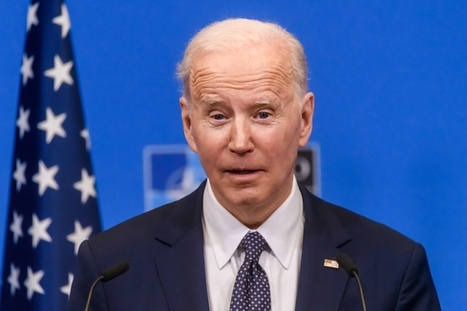Over the past year, I’ve argued continually that the U.S. economy is stronger than commonly recognized and the outlook for corporate earnings and share prices is positive.
Recent events have vindicated those views.
Unemployment has been below 4% for 24 straight months.
The economy not only dodged a recession last year. It grew at 3.1%.
Consumers continue to spend briskly.
Stocks recently hit new all-time highs.
And we’re sitting on double- and triple-digit gains in every recommendation in our Oxford Trading Portfolio in The Oxford Communiqué.
Yet when I talk to investors, most are pessimistic about the U.S. economy.
Why?
For starters, we recently had the highest inflation in 40 years. Wage increases have only just begun to exceed price increases.
Consumers are still shocked at the cost of groceries. (And even when inflation is moderating, prices don’t go back down.)
Mortgage rates have risen from 3% to 7%, making homes unaffordable to many Americans.
Consumer sentiment, as measured by the University of Michigan, did recently post the biggest two-month increase since 1991.
Yet it remains 20% lower than it was before the pandemic.
Some blame the disconnect between the strength of the economy and the gloominess of Americans on the war in the Middle East and Ukraine.
Or on the intense political polarization in the nation.
Or on the flood of unvetted migrants streaming across our southern border.
Yet you can sum up the real reason most Americans are feeling down in just two words: Joe Biden.
The man – who looks and sounds increasingly infirm – does not instill confidence.
Polls show that even a majority of Democrats believe he is too old to run again.
Yet Biden continues to insist – despite polls to the contrary – that he is the best man for the job.
Americans aren’t buying it.
“Take the man off a teleprompter,” a progressive friend declared to me recently, “And he cannot string two coherent sentences together.”
Critics insist that this is not just a political problem. It’s a national security problem.
If the commander-in-chief cannot remember where he is or what he’s talking about, who is making all the game time decisions in the White House?
Supporters insist that Biden has been an effective president and is not getting the credit he deserves for the stronger-than-expected economy.
But, to the extent that his policies have influenced the economy, they have undermined confidence.
Voters know that the blow-out spending bills that Biden signed into law have boosted economic activity.
But they also know that trillion-dollar-plus annual deficits create an unsustainable sugar high.
Like the fabulous party that is bound to lead to a wicked hangover, workers realize their jobs are not secure if the increase in their business is due to temporary, debt-fueled spending.
However, if deficit spending alone was keeping the economy afloat, I wouldn’t be bullish either.
There is a lot more going on. Amazing things are happening in the private sector today.
Businesses are knocking themselves out night and day to bring us products and services that are better, cheaper and longer lasting.
This has resulted in an enormous spike in our living standards, our quality of life and even our life spans.
Technology companies – like Apple, Microsoft, Amazon, Nvidia, Google and others – are revolutionizing our lives.
Biotechnology companies – like Merck & Co., Crispr Therapeutics, and Novo Nordisk – are saving and extending our lives.
In the January issue of The Oxford Communiqué, I focused on “Eight Megatrends for 2024 and Beyond.”
These are cutting-edge technologies that are changing the world for the better.
They include artificial intelligence, edge computing and robotics, to name a few.
Fortunes will be made in these areas in the months and years ahead.
But it won’t be thanks to Joe Biden… or any other politician for that matter.
It will be due to the entrepreneurs who innovate, produce and distribute new products, thereby improving the general welfare.
The bottom line?
As an investor, don’t be distracted by all the disappointments and intrigue in the public sector.
Focus instead on all the amazing things happening in the private sector.
